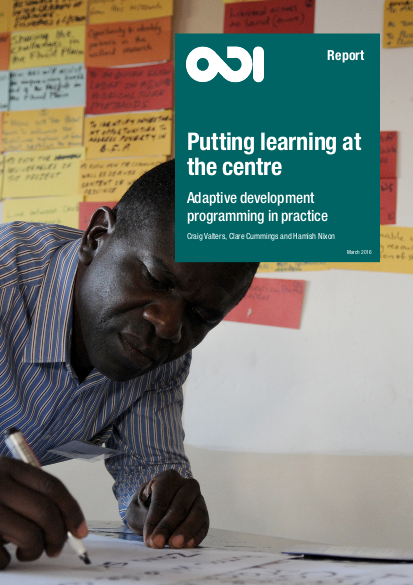
‘Adaptive programming' responds to several key understandings about development: that development actors may not be able to fully grasp the circumstances on the ground until engaged; that these circumstances often change in rapid, complex and unpredictable ways; and finally that the complexity of development processes means actors rarely know at the outset how to achieve a given development outcome – even if there is agreement on the outcome of interest. Adaptive programming suggests, at a minimum, that development actors react and respond to changes in the political and socio-economic operating environment. More substantially, a programme may recognise from the outset that change is inevitable, and build in ways to draw on new learning to support adaptations. For some development problems, an adaptive approach will involve experimentation, in particular where the overall objective is clear but how to achieve it in a given context is unknown or uncertain. Being prepared to react to change may seem like common sense – and indeed it is. However much development thinking and practice remains stuck in a linear planning model which discourages learning and adaptation, in part because projects are seen as ‘closed, controllable and unchanging systems’.
